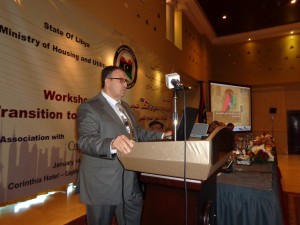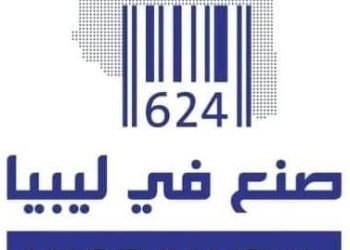By Libya Herald reporter.

Tunis, 01 November 2015:
‘’Libya’s economy is a sick economy’’ and it ‘’is in intensive care’’, declared the Central . . .[restrict]Bank of Libya (CBL) Governor Ali Salem Hibri.
Speaking on the Amman-based privately-owned Libya’s Channel on Friday Hibri said that ‘’the doctor needs to diagnose, give medicine or surgery and allow recuperation of Libya’s economy. There are no fast solutions to Libya’s financial problems’’, he stressed adding that it will ‘’need 3-7 years. There are no magic solutions’’, he explained.
Hibri is Governor of the Al-Beida based CBL representing the only internationally recognized Libyan government and parliament based in the east of the country.
He added that ‘’there will be a full recovery’’ of Libya’s economy but that ‘’bankruptcy is far away. Central banks don’t go bankrupt’’, he stressed.
The CBL Governor explained that Libya’s financial woes were as a result of the fall in Libya’s oil production, the fall in international crude oil prices as well as the expansion of public sector spending and corruption.
As a result of a loss of confidence in the economy Libyans are keeping their cash away from the banks which is adding to the economic crises, he added.
Libya’s oil production has crashed down from around 1.5 million barrels per day in 2013 to between 300,000 to 400,000 bpd whilst crude oil prices have crashed from over US$ 100 pb to under US$ 50 pb.
This has resulted in Libya’s oil revenues shrinking from around US$ 50-60 billion to around US$ 7-10 billion per year. This leaves a deficit of US$ 10 bn in Libya’s budget which is made up from foreign currency reserves, Hibri explained.
Hibri said that Libya had US$ 87 billion of foreign currency reserves all kept abroad in triple A rated banks across 38 different countries such as the USA, UK Germany etc. None of the foreign currency was kept in Libya, he added.
Regarding the possibility of Libya needing to seek international loans soon if it exhausted its foreign currency reserves, Hibri said that this was unlikely. He felt that Libya had reserves for about four years and oil reserves of 47 billion barrels of oil.
Hibri felt that the ‘’bankruptcy’’ scenario was marketed by politicians to force a political solution and consensus between the two main warring political parties.
The CBL Governor said that Libya needed to gain control over its budget deficit and its balance of payments deficit. In other words, it needed to implement austerity measures and reforms to reduce its LD and foreign currency spending in line with its actual revenues.
Looking forward, Hibri said that having allowed enough time (for both conflicting political parties) to reach a consensus he says that there is no option but for the eastern-based authorities to start selling their own oil.
Hibri acknowledged that whilst it is true that all the money from historic oil contracts signed with the Tripoli authorities was being paid to the Tripoli National Oil Corporation (NOC), he claimed that ‘’some new oil contracts signed since the conference in Malta will start to be paid to the eastern-based NOC’’.
The CBL Governor also admitted that there is cooperation between the Tripoli and Beida central banks. He also claimed that his Beida-based CBL could have easily printed its own money and he could have sold its gold reserves to create a separate independent CBL in the east, but that would have destroyed the Libyan banking system.
Hibri said that there needed to be reform in the way Libya’s hard currency was spent. He favoured different exchange rates for essential and non-essential imports. In effect he was favouring a partial revaluation of the LD exchange rate.
He also felt that the black market FX rate could be solved in 3-6 months anticipating that it will fall from about 3.6 to 3.8 per US$ to about 1.8 per US$. This was based on the fact that local FX consumption was only about US$ 100.
He attacked the decision by the Tripoli-based CBL to freeze the use of foreign currency debit cards adding that this only increased the black market price of FX. Hibri said that corruption in Tripoli was the main cause of the high FX rate. He suggested that only one bank branch is allowed to issue FX in order that the CBL can control corruption.
[/restrict]







